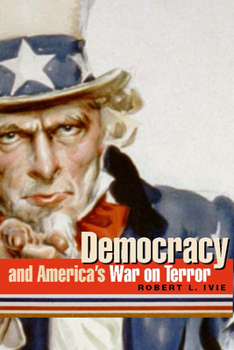Democracy and America's War on Terror
Robert Ivie, who has written extensively over the last thirty years on America's rhetorical appetite for war, discusses democracy's centrality to the national identity and how prevailing constructions of democracy constitute a republic of fear in which the threat of foreign and domestic "otherss" chronically exaggerated through rituals of vilification and victimization.
In reassessing the nation's traditional distrust of democracy (the lively and healthy exchange of differing ideas and ideals) and critiquing the rhetoric of evil, Ivie argues that the problem of international terrorism is best addressed by strengthening, rather than weakening, America's democratic practices--that is, by enriching a democratic culture of robust debate. Divisive issues, for Ivie, should be engaged overtly and constructively, contested through a rhetoric of identification that bridges the differences between adversaries without effacing their identities. This would be, he believes, a strategy more responsive to, and realistic for, the prevailing condition of racial diversity in the global information age.
Democracy and America's War on Terror will be of interest to public policymakers and informed general readers as well as students and scholars in the fields of rhetoric, political theory/philosophy, democratic theory, U.S. foreign relations/policy, war and peace studies, terrorism, and cultural studies.




